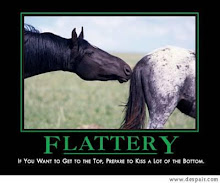Recently at the stables we had a horse come down with a mysterious illness. Symptoms much like colic, stretching, not drinking or eating properly, little poo and very obvious muscle contractions in the stomach. Along with this he had a high temp and increased heart rate. ( He's ok now) What made me really proud of his owner was that she KNEW his resting heart rate and his normal afternoon tempurature ( see EI coming to Aus did have one, albeit small, silver lining, most people now know these things!). Since I already know how much water each horse drinks, and their output, from there it's easier to tell what was going on and be able to inform the vet appropriately. His recovery time was reduced by our knowledge of what is "normal" for this horse.... yeah the vet had something to do with it as well! Being able to determine their return to normal, and in some cases through normal and out the other side, may make the difference between their being lasting side-effects from an illness, like kidney disfunction or secondary stress colic.
So go out there and discover some things about your horse that you don't know. Heart rates (resting and in work), how many poos your horse does a day ( both daytime and night time), how much water he drinks ( again day/night) and his normal tempurature ( morning/afternoon). All this will help you determine if your horse is getting sick, or is in pain from an injury. They are some of the most important things you should know, and can be the difference between you calling the vet this morning, and rushing out to the vet hospital this afternoon! It may even be more important than knowing which side is his bad side for changes, or his favourite treat!!!!
General Knowledge:
Average Resting Respiratory Rate 8-16 breaths/min
Average Temp. 36.5 - 38.5 C
Average Resting Pulse Rate 25-45 bpm
Average water intake 20-40L/day ( depending on size/conditions)
There is a lot of variation between "averages" and this is why it is so important to know the average specific to YOUR horse.
When people ask for shit
10 years ago

No comments:
Post a Comment